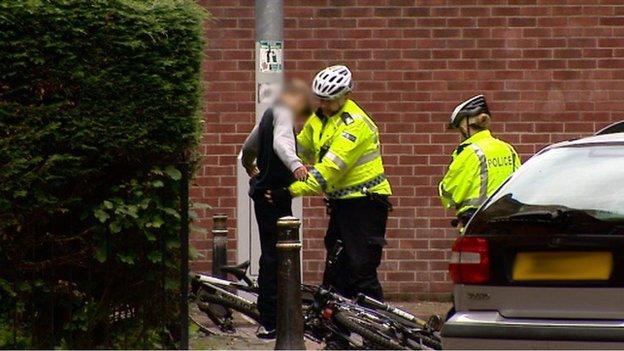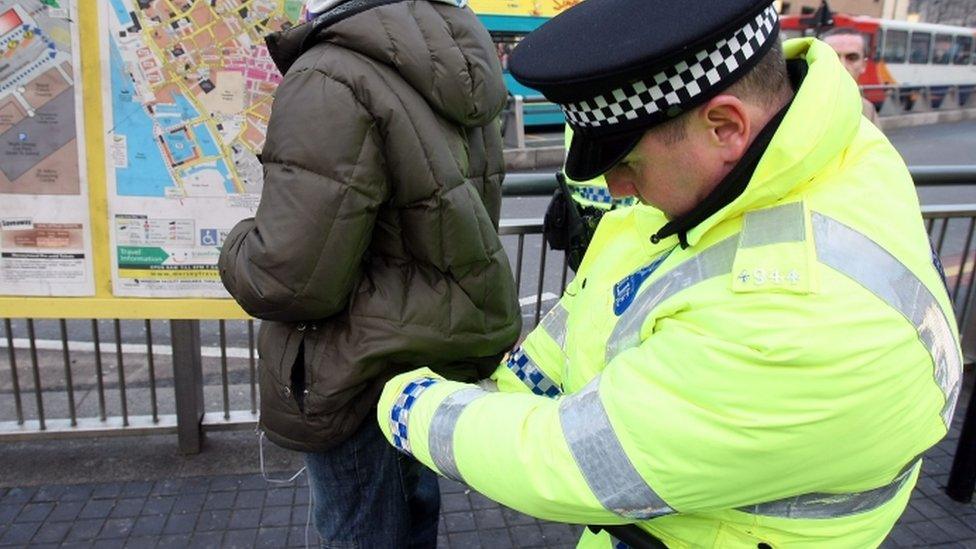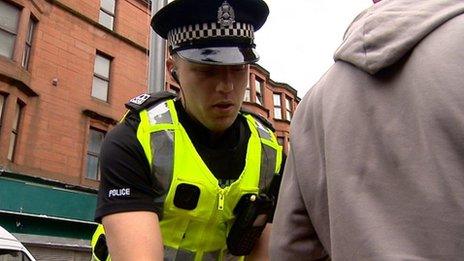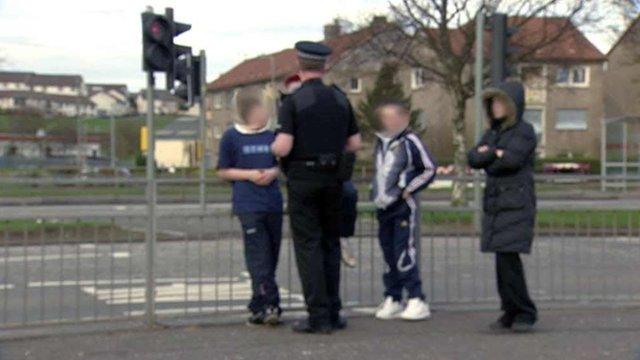No new power for police stop-and-searches for alcohol
- Published

The Scottish government has decided not to create a new power for police to search young people for alcohol.
It follows a consultation which ministers said showed insufficient evidence to support it.
Police Scotland phased out a policy of consensual stop-and-search, which was controversial and had no legal basis.
They continue to stop young people who they believe may be committing an offence - but the law does not permit them to search for alcohol.
The government had 130 responses to a consultation on the issue, from individuals and organisations.
It also spoke with young people with experience of being searched.
It concluded that there was "not enough evidence at this time to support a new power".

Justice Secretary Michael Matheson said: "We know stop-and-search can be a valuable tool in combating crime, but it is important that we get the balance right between protecting the public and the rights of individuals.
"Maintaining trust between the police and the public is an important part of finding that balance and we have been listening to people's views, including young people, about when and how stop-and-search should be used.
"Police Scotland are already phasing out the practice of non-statutory, or consensual, stop-and-search, following recommendations of the independent Advisory Group, ahead of the introduction of the new code from next year."
'Clearer idea of impact'
He added: "We welcome the range of views provided, particularly over the issue of powers to search for alcohol. We want to make the right decision, which is why we will gather more evidence while the code of practice is in place before considering the issue further."
The government plans to review the policy again next year.
John Scott QC, chairman of the Advisory Group, said: "This consultation exercise provides a new benchmark for consultation exercises involving and affecting children and young people.
"With the considerable assistance of individuals, groups and networks, we now have a much clearer idea of the impact of police activity, both positive and negative, on some of our younger citizens."
'Good relationships'
Assistant Chief Constable Mark Williams said: "While police officers require to have sufficient powers to allow them to intervene and recover alcohol, there is a balance to be struck between Police Scotland's absolute commitment to protect children and young people and ensuring that we maintain and sustain good relationships, trust and confidence.
"The views of children and young people are really important to Police Scotland and have helped shape new national training on the use of stop-and-search which is currently being rolled out to all officers in advance of the code being introduced."
Pauline McIntyre, parliamentary and policy officer for the Children and Young People's Commissioner Scotland, who is also a member of the independent Advisory Group on stop-and-search, said: "The Scottish government's decision not to go ahead with a new statutory power is the right one for children and young people.
"The evidence overwhelmingly suggests that it is seizures, not searches, that help keep children and young people safe in relation to alcohol.
"I am pleased that children and young people, including those with direct experience of stop and search, were widely consulted on this issue. I also welcome the commitment to a children and young people's section in the code of practice."
- Published3 September 2015

- Published5 February 2015
- Published4 February 2015

- Published26 November 2014

- Published19 June 2014

- Published30 May 2014
